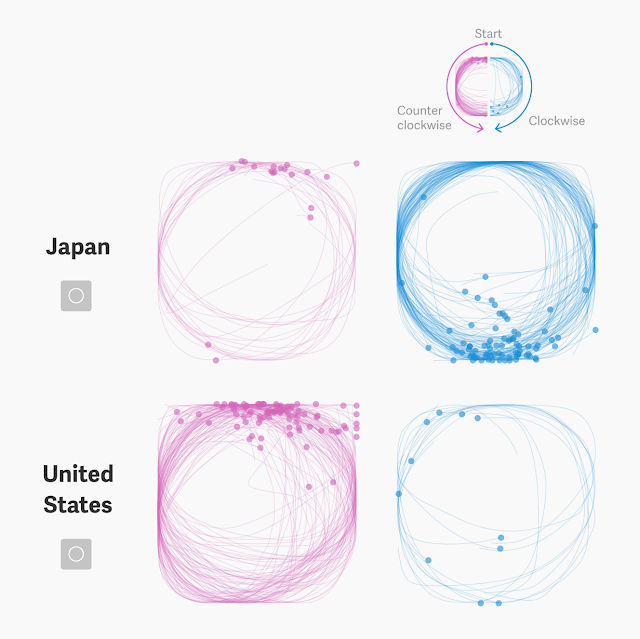| Google Launches Web Component And Data API For Quick, Draw! |
| Written by Kay Ewbank | |||
| Wednesday, 28 November 2018 | |||
|
Google has released a web component and API based on drawings collected as part of its Quick, Draw! AI-based drawing experiment. The process started with an online game called Quick, Draw! in which you get 20 seconds to draw a doodle, after which the program attempts to guess what you're drawing. Since it launched in 2016, Google has collected over 1 billion drawings across 345 categories. On the back of that, Google then open sourced a collection of 50 million drawings along with metadata such as geographical locations of the creator, giving developers around the world access to the data set and the ability to conduct research with it.
This dataset has been used for a variety of research into how people draw, and how it differs in different cultures. For example, most Americans draw circles counterclockwise, while most Japanese draw them clockwise.
Google is now releasing a Polymer component that lets you display a doodle in your web-based project with one line of markup. Alongside the Polymer component there's a Data API that layers a massive file directory (50 million files) and returns a JSON object or an HTML canvas rendering for each drawing. The API returns a single drawing based on your search meaning you don't have to download gigabytes of data in order to use it. For situations where you're likely to want more of the data, Google has provided instructions on how to host the data and API yourself on Google Cloud Platform for more serious projects that demand a higher request limit. Google has also set up a public Google Group that you can join in order to have the API available in your API library. All you need to do is search for it and add it to your project, after which doodles can be displayed in your web apps using a single line of code. The hope is that the component and Data API will make it easier to manipulate the data for research. The team at Google working on it say that a potential next step for the project could be to store everything in a single database for more complex queries.
More InformationPublic Google Group For Accessing API Related ArticlesPlay Google's AI Drawing Guessing Game Google Uses AI To Make Better Artists Google Expands AI Research In Montreal AI Goes Open Source To The Tune Of $1 Billion //No Comment - Quantized Neural Networks Neural Networks Describe What They See Deep Learning Researchers To Work For Google
To be informed about new articles on I Programmer, sign up for our weekly newsletter, subscribe to the RSS feed and follow us on Twitter, Facebook or Linkedin.
Comments
or email your comment to: comments@i-programmer.info |




